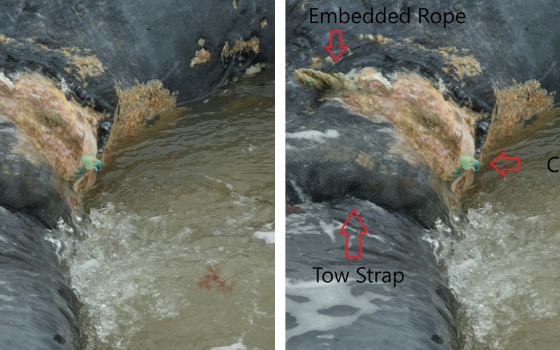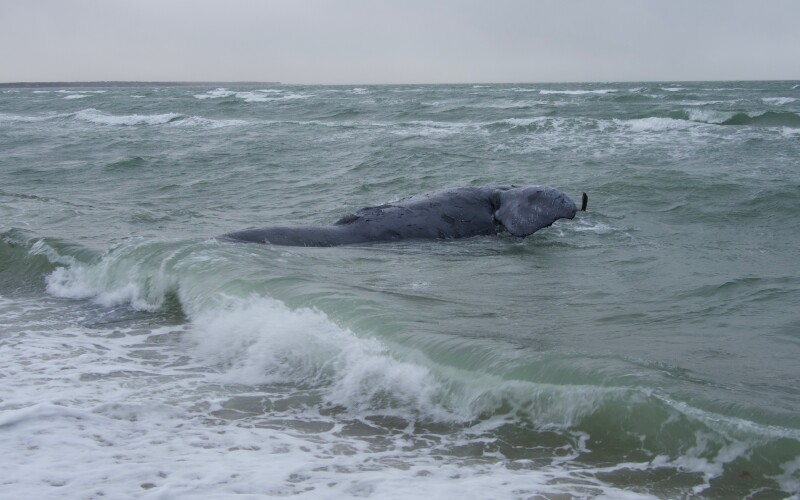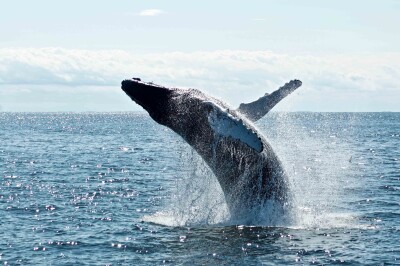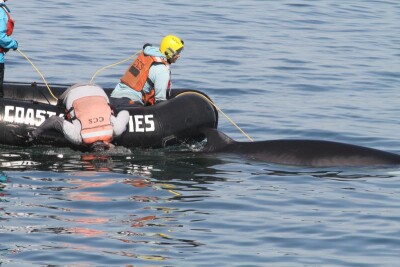A piece of rope removed from a dead female North Atlantic right whale on Jan. 28 is undergoing analysis as the National Oceanic and Atmospheric Administration and other experts work to determine a cause of death.
The dead whale, presumed to be a juvenile by its size, was reported Sunday afternoon near Joseph Sylvia State Beach on Martha's Vineyard, Mass. NOAA Fisheries and the International Fund for Animal Welfare worked to respond to the stranding with Edgartown Police, the Wampanoag Tribe of Gay Head (Aquinnah), and the Woods Hole Oceanographic Institute.
Massachusetts state law enforcement officers collected a piece of rope that was found entangled around and embedded in the whale’s tail, turning it over to NOAA’s Office of Law Enforcement, according to a statement from the agency. “Authorized members of the National Marine Mammal Stranding Response Network are planning to perform a necropsy (an animal autopsy) to investigate the cause of death as logistics allow,” according to NOAA.

North Atlantic right whales are in danger of extinction, with only around 360 animals surviving since a steep population decline of 25 percent in recent years. The Martha’s Vineyard incident is the 37th documented death since NOAA declared an “unusual mortality event” with the species.
NOAA and marine mammal protection groups point to ship strikes and fishing gear entanglements as leading causes of whale mortality.
More recently, activist groups that opposed offshore wind energy development have insisted that numbers of whale strandings on the East Coast can be correlated to survey and construction work on energy projects, like the 804-megawatt Vineyard Wind project now being built. That accusation showed up in some social media posts amid news of the Martha’s Vineyard stranding.
Environmental groups took the news to buttress their calls for NOAA to expand vessel speed limits and work with the fishing industry to adopt so-called ropeless gear to eliminate vertical lines in the water for lobster and fish traps.
Whale conservation advocates say more than one right whale death in any given year speeds up the danger of extinction.
“We’re not even out of January yet and we’ve already blown past that limit for 2024,” said Jane Davenport, senior attorney at the group Defenders of Wildlife. We are running out of time to do what needs to be done to reverse course and avoid extinction.”







